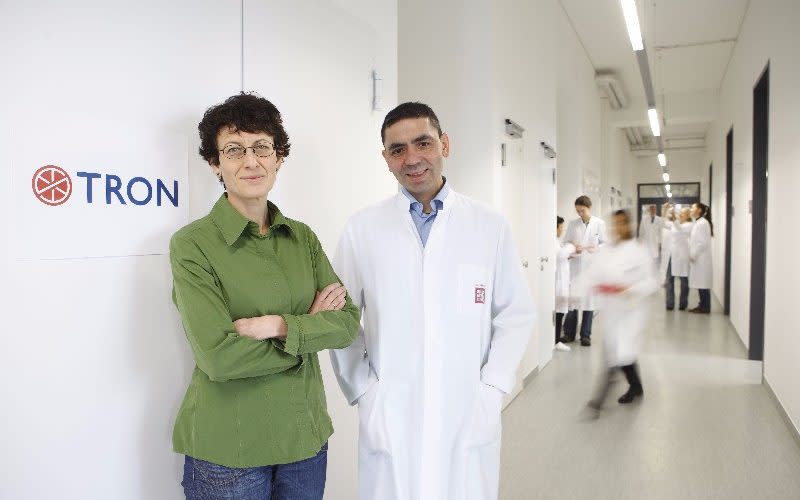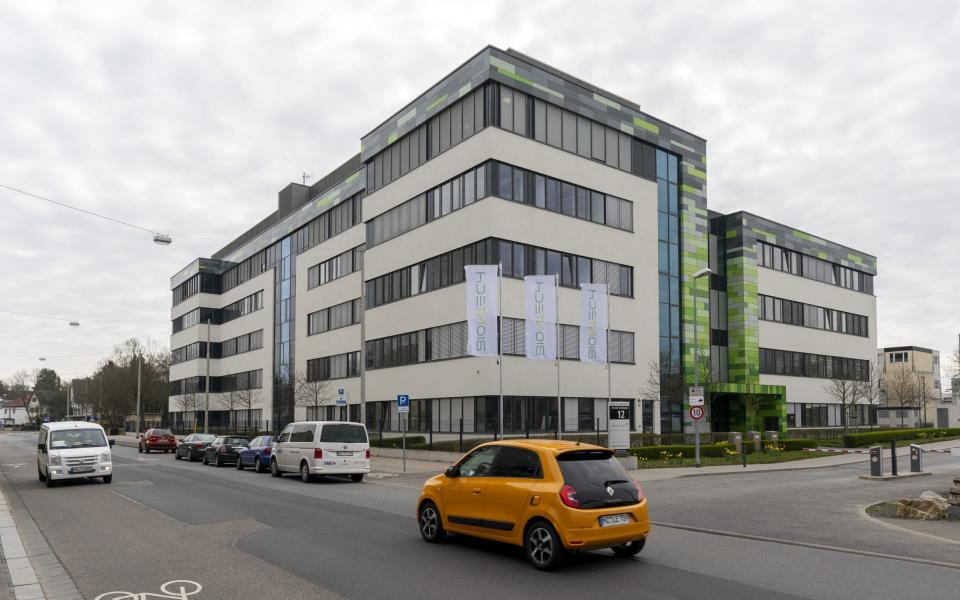German couple behind vaccine are immigrant success story

The couple behind the coronavirus vaccine breakthrough are among Germany’s biggest immigrant success stories.
While the search for the vaccine has been bankrolled by Pfizer, the American pharmaceutical giant, the groundbreaking technology behind it is the work of BioNTech, a German company founded by a married couple who are both the children of Turkish immigrants.
Prof Ugur Sahin was born in the Turkish Mediterranean city of Iskenderun, near the border with Syria. He moved to West Germany when he was four years old. His father was a Gastarbeiter, or migrant worker, at a Ford car factory in Cologne and his mother brought the rest of the family to join him.
West Germany discouraged immigration at the time. Gastarbeiters were seen as temporary workers and they and their families had little prospect of German citizenship.
Watch: What does the Pfizer vaccine announcement mean for me?
Yet today Prof Sahin and his wife, Özlem Türeci, are among the richest 100 people in Germany. They sold their first business for $1.4bn (£1bn) in 2016, and BioNTech’s value has soared to $21bn (£16bn) in the wake of the vaccine breakthrough.
As a young man, Prof Sahin battled against the odds to pursue his dream of a career in medicine — a longshot for the son of a migrant car worker. He studied medicine in Cologne and Homburg and specialised in cancer treatment.
It was while working as an oncologist in Homburg that he met his future wife, Dr Türeci. Although she was also the child of immigrants, Dr Türeci had a somewhat more conventional path to a medical career. Her father was a doctor who immigrated from Istanbul and she was born in Germany.

It was the couple’s interest in cutting edge new treatments for cancer that made their fortune — and that has resulted in the new coronavirus vaccine.
They became fascinated by the possibility of using modified genetic code to teach the body’s immune system to fight cancer. In 2016, they sold their first pharmaceutical business, Ganymed, for $1.4b (£1bn). They had already started BioNTech to develop a wider range of cancer treatments.
But when the coronavirus pandemic broke in January Prof Sahin gathered his team and told them BioNTech was switching its focus to the virus. “We have to deal with this virus. It’s a human task,” he told them.
While no one doubts that was his prime motivation, it is also an opportunity to test the potential of Messenger RNA (mRNA), a technology many believe could revolutionise vaccines.
Despite the couple’s wealth and business success, Prof Sahin remains in academia. He still teaches at Mainz University. He is described by colleagues as “humble”, and is known for turning up to business meetings carrying his bicycle helmet.
“He is a very modest and humble person. Appearances mean little to him. But he wants to create the structures that allow him to realise his visions and that's where is aspirations are far from modest,” said Matthias Theobald, a colleague at Mainz University.
Pfizer’s head of vaccine research and development Kathrin Jansen was also born in Germany, but on the other side of the Iron Curtain. Her family fled from communist East Germany to the West shortly before the construction of the Berlin Wall in 1961.
Jansen was drugged by her aunt so that she slept through the journey and avoided having to answer any awkward questions from the authorities. While her father pretended to be travelling for a job interview, her aunt claimed Jansen was her daughter to avoid questions.
She claims her fascination with medicine began when as a child she suffered frequent throat infections and coughs and was amazed that simple drugs could make her feel better.
After completing her doctorate at the Philipps-University in Marburg, she moved to the US, working at Cornell and Massachusetts General Hospital before moving to the Glaxo Institute for Molecular Biology in Geneva.
She then moved to pharmaceutical giant Merck where she helped develop a vaccine against human papilloma virus, then moved to Wyeth to develop a jab against pneumococcus. Pfizer bought Wyeth in 2009.
Since March, she has headed up a 650-person team developing the vaccine, mostly from her apartment in Manhattan via Zoom.
Watch: Eight exceptions for going outside during England's second national lockdown

